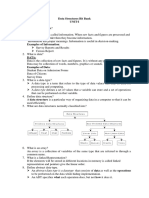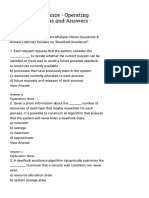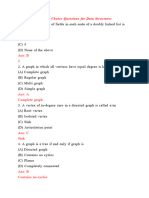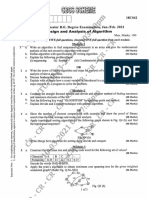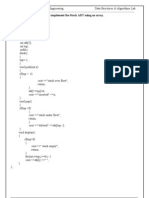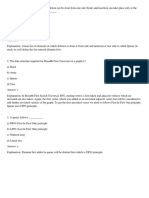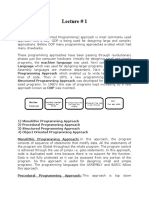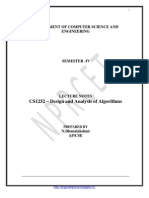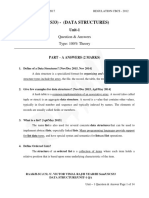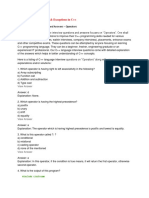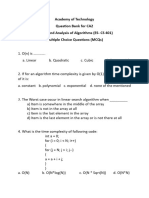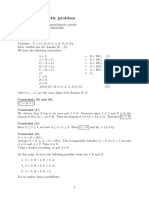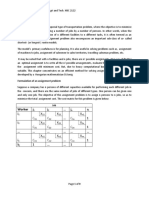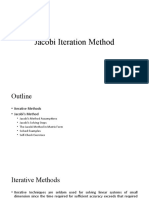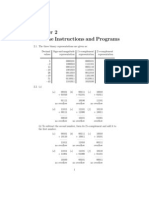0% found this document useful (0 votes)
2K views3 pagesPractice Questions On Time Complexity Analysis
The document presents practice questions on time complexity analysis, providing code snippets and their corresponding time complexities. It explains the reasoning behind the complexities for various algorithms, such as O(N + M), O(N^2), and O(log N). Additionally, it discusses the concept of asymptotic efficiency in algorithms, indicating that one algorithm can be more efficient than another for larger inputs.
Uploaded by
datalogdigitalCopyright
© © All Rights Reserved
We take content rights seriously. If you suspect this is your content, claim it here.
Available Formats
Download as PDF, TXT or read online on Scribd
0% found this document useful (0 votes)
2K views3 pagesPractice Questions On Time Complexity Analysis
The document presents practice questions on time complexity analysis, providing code snippets and their corresponding time complexities. It explains the reasoning behind the complexities for various algorithms, such as O(N + M), O(N^2), and O(log N). Additionally, it discusses the concept of asymptotic efficiency in algorithms, indicating that one algorithm can be more efficient than another for larger inputs.
Uploaded by
datalogdigitalCopyright
© © All Rights Reserved
We take content rights seriously. If you suspect this is your content, claim it here.
Available Formats
Download as PDF, TXT or read online on Scribd
/ 3







